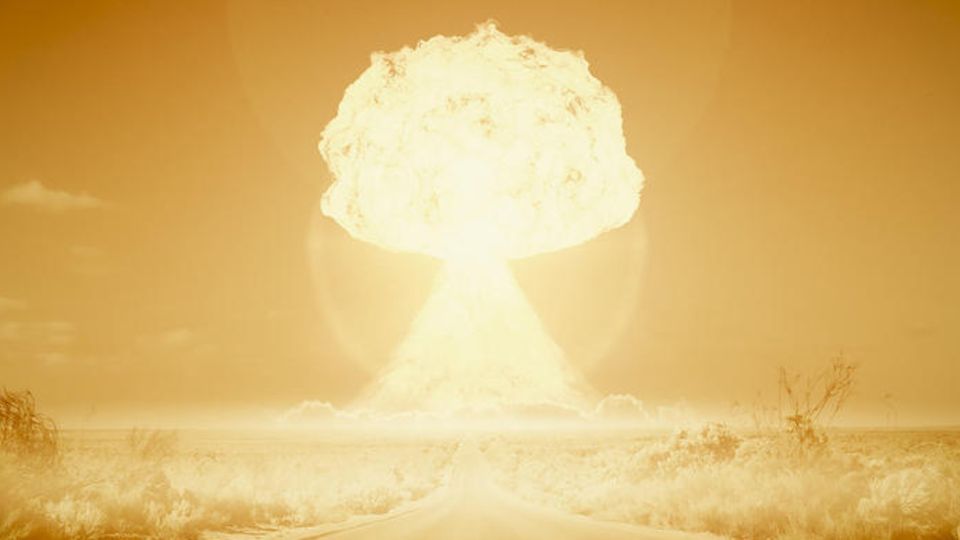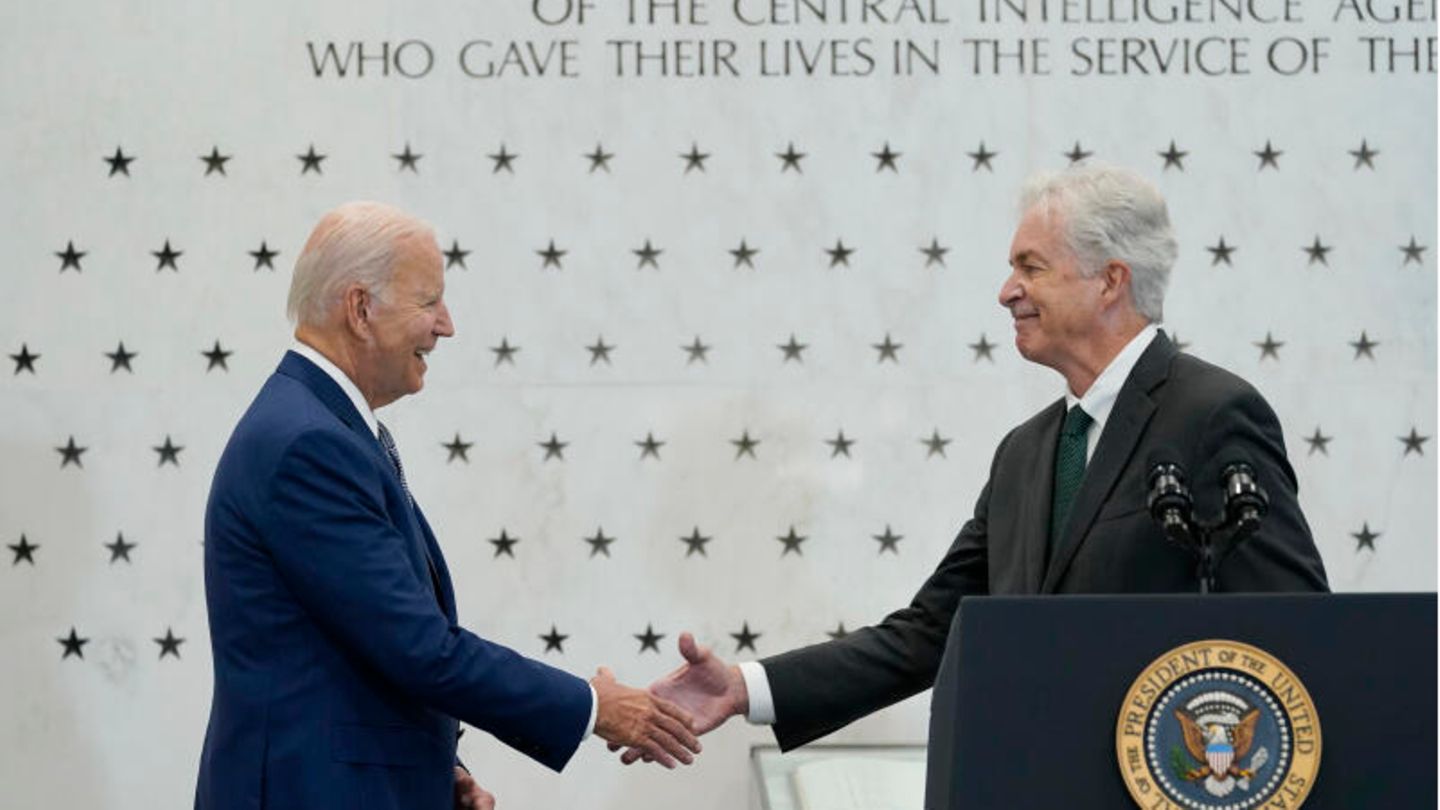When the US secret services predicted exactly that months before the start of the war, many dismissed it as scaremongering – including President Zelenskyj. It is now clear that Ukraine not only depends on weapons from the West, but also on information.
December 2021: Since the beginning of the month, US media have been quoting intelligence reports predicting a Russian military offensive in Ukraine early next year. cites an anonymous official in the Biden government, according to whom tens of thousands of Russian soldiers are already stationed at strategically important border points. While media (including the star) who mostly interpret troop movements as alarming but ultimately probably empty “saber rattling”, the US secret services are certain: Putin is preparing an invasion. “I would never underestimate President Putin’s willingness to take risks with Ukraine,” CIA Director William Burns said in a
Early 2022: The Ukraine “conflict” is coming to a head. Secret services continue to publish reports on Russian troop movements and manipulation operations – the talk is of fake videos and cyber attacks. The aim is to create a pretext for the impending attack. “The Biden administration’s warnings of a Russian invasion of Ukraine now seem like the weather channel is tracking a hurricane,” writes Anthony Faiola, a columnist for the Feb. 11.
A month earlier, the White House had stated that the secret services considered an attack on Ukraine within the next 30 days to be realistic. You should be right.
MI6 and CIA in the Ukraine war: essential help from a bird’s eye view
Even today, long after saber-rattling became stabbing, the secret services continue to broadcast. “President Biden’s decision to be very careful and selective about releasing some of our secrets has played a very effective role over the past six months,” CIA Director William Burns.
The US intelligence services are in intensive contact with Kyiv and provide the defenders with strategically valuable satellite and drone data, which can be used to predict Russian troop movements and enemy positions to be pinpointed.
Without this “eagle eye” Ukraine would have been blind to Russia’s rapid troop movements, especially in the early weeks of the war. “From the beginning, we have gone quite far in exchanging strategic and actionable intelligence with Ukraine,” a US official said in April. Valuable information for combating Russian positions would be exchanged “in real time,” said a former high-ranking intelligence officer at the time.
In the meantime, communication with the US secret services is going through a center in Germany about which little is known, reconnaissance expert Greg Austin from the International Institute for Strategic Studies in Singapore explains to the “Spiegel”.
MI6 is also considered a close ally of Kiev. According to Austin, the data from the British secret service is less sensitive than that of its US counterpart. They are usually fed from freely accessible sources, such as public satellite images. Nevertheless, London provides the Ukrainian general staff with important information about weak points on the Russian front, supplies and reinforcements.
Simulation lightning offensive
The importance of this lively exchange between Washington, London and Kyiv was most recently demonstrated during the Ukrainian lightning offensive in September (the star reported). This “biggest counter-offensive since World War II,” which the US military academy in Westpoint called the recapture of numerous areas in the north-east of the country, would not have been possible without the help of the foreign secret services.
The New York Times reports that President Selenskyj originally instructed his general staff to draw up plans for a major offensive in the south. The ultimately groundbreaking decision to split the military effort and concentrate on the Kharkiv region in the north-east rather than on the actually more strategically important south was based not least on careful analyzes by the British and American intelligence services. They are said to have simulated various attack scenarios together with their Ukrainian colleagues in advance. On this basis, Kyiv ultimately decided to advance in the north-east. “We gave that advice, and the Ukrainians then internalized it and made their own decision,” the US newspaper quoted Colin Kahl, a close adviser to US President Joe Biden.
And so Ukrainian units advanced at the same time in the south – just on a much smaller scale. “It was a big special disinformation operation,” Ukrainian Special Forces press officer Taras Berezovets said. “In the meantime, [unsere] Boys in Kharkiv are equipped with the best Western weapons, especially American ones,” said the officer. When the actual advance began in the northeast instead, the invaders were completely taken by surprise. “The Russians had no idea what was happening.”
The declassification of the secret: a precedent for the work of the secret services
But the secret services work more from the penumbra – they share information not only with their Ukrainian colleagues, but also with the world public. The British Ministry of Defense, for example, publishes almost daily via Twitter, in which London discloses troop movements, losses and potential war crimes on the basis of secret material – the spy newsletter for the home, so to speak. However, these posts contain only a fraction of the information that ultimately ends up in Kyiv. “I assume that the slides are created when the morning briefings are prepared for the ministry. Then someone removes the really classified information and publishes the rest,” said Jeffrey Michaels, an expert on security and intelligence issues at the Institut Barcelona d’Estudis Internacionals , opposite the “Tagesschau”. According to Michaels, these analyzes are generally not particularly up-to-date and in some cases far inferior to those of some military experts. Nevertheless, they serve their purpose: They strengthen trust in the secret services and serve as a counterpoint to Russian propaganda.
In fact, security experts Huw Dylan and Thomas Maguire from London’s King’s College are certain that the war in Ukraine changed the practices of the secret services forever and “probably set a precedent for this more open approach to the disclosure of secrets”. The head of Britain’s MI6, Richard Moore, also said in an interview that his service “needs to be more open in order to remain secret”. He is the first intelligence officer to use Twitter.
Beat Putin at his own game
The fact that governments go public with precarious information is not new in itself. The extent of this “transparency” certainly is. It is information warfare on a new level. According to an article by the British think tank Agora, the Western secret services have “denied Russia the initiative in the information space”. The West has shown “that you can beat Putin at your own game.” Russia, once the master of so-called “hybrid warfare”, is losing out – probably to its own surprise. The advantages of this open-hearted tactic are obvious: it aims to refute Kremlin propaganda and fake news, to justify the massive sanctions and to rob the Russian military leadership of the surprise advantage.
But that also harbors dangers.
Every time the US or UK releases intelligence information, they take a risk. It opens up the possibility for the Kremlin to trace the origin of information and close the corresponding security gaps – which may pose a threat to the lives of whistleblowers. Or, which would be the more dangerous option: Moscow could decide to deliberately use the leaks to spread misinformation.
In addition, the information shared with the public must be precise, but not so precise that error tolerance is lost. Unless forecasts ultimately turn out to be wrong, it undermines public confidence in the secret services – prime example: the infamous September 2002 dossier by the British Secret Service alleging that Iraq possessed weapons of mass destruction.
Federal intelligence service: second-class help?
Military expert Gustav Gressel believes that the Ukrainians’ previous cooperation with the Americans and British shows how much the continental European intelligence services are lagging behind. After all, they weren’t even able to independently verify the reports from the beginning of the year in which Washington predicted Russia’s imminent attack. “Their decision-makers had to rely more on their instincts than on evidence,” believes Gressel.
In addition, unlike the British and Americans, the EU was reluctant to cooperate with the Ukrainian secret services before the war for fear that their data could fall into the wrong hands. The reason for this is that the EU almost frantically zeroed in on the Ukrainian domestic secret service SBU, which was notorious for being corrupt. Because it is “a central theme of the general efforts to reform the rule of law, which the EU has been supporting since 2014”. “Only a handful of EU member states have bilateral relations with military intelligence [GUR] built in Ukraine. That’s unfortunate – and not just for Ukraine,” says Gressel.
And yes, the German Federal Intelligence Service (BND) is also supporting Ukraine with information. Accordingly, these are reconnaissance findings that came from satellite images, intercepted radio messages or mobile phone calls. However, this can hardly be compared with the work of the British and American counterparts, especially since the data reach Kyiv with a delay of several days. Therefore, they are not directly usable for the planning and control of deadly attacks.

For better or for worse, the Ukrainians are still dependent on the support of the US secret services, on their help from the penumbra. After all, they want to continue to deliver: “Although the last chapter of Putin’s war in Ukraine has not yet been written, I think that the secret services will continue to play an enormous role in supporting Ukraine …. and ensuring that Putin is in the Ukraine is failing,” CIA director Burns said Sept. 8. A few days later, the most successful phase in the Ukrainians’ freedom struggle to date began.
Other sources: “”; ; “”; , “”
Source: Stern
David William is a talented author who has made a name for himself in the world of writing. He is a professional author who writes on a wide range of topics, from general interest to opinion news. David is currently working as a writer at 24 hours worlds where he brings his unique perspective and in-depth research to his articles, making them both informative and engaging.




